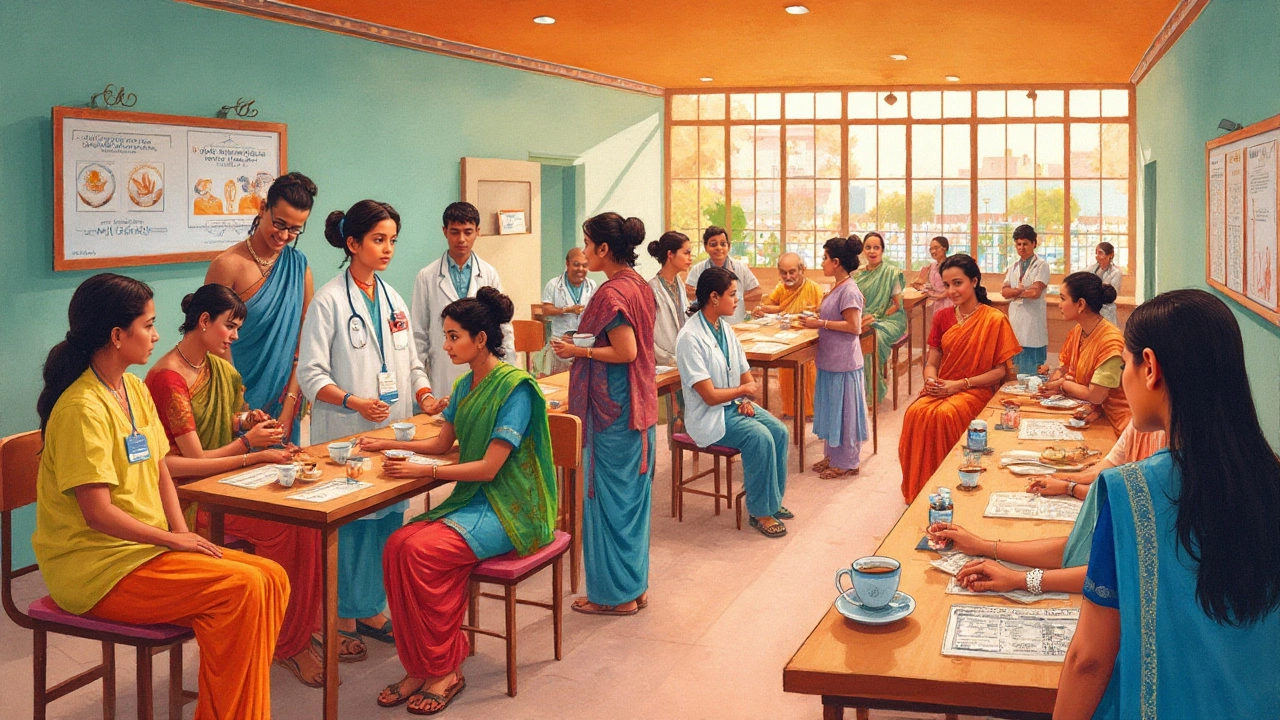Wellness Made Simple: How to Feel Good and Stay Safe with Medicines
We all want to feel our best, but the road to wellness can get messy when you mix in unknown drug side effects or confusing health trends. This page pulls together the most useful ideas from our articles so you can boost energy, manage stress, and keep an eye on the safety of the medicines you take.
Practical Everyday Wellness Tips
First off, start with habits that cost nothing but pay big dividends. Drink a glass of water as soon as you wake up – it jump‑starts metabolism and helps flush toxins. Pair that with a 10‑minute stretch routine; even simple moves like forward bends or gentle twists can loosen tight muscles and improve circulation.
Food is another easy lever. Swap refined carbs for whole grains or fresh fruit. A handful of almonds or a spoonful of almond butter gives steady energy without the sugar crash. If you’re tackling belly fat, try an Ayurvedic approach: drink warm water with a pinch of turmeric in the morning and finish your dinner a few hours before bed. This aligns with the 80/20 rule we talk about in Ayurveda – focus on the right foods most of the time, and allow a few treats without guilt.
Sleep is non‑negotiable. Aim for 7‑8 hours in a dark, cool room. If you struggle to fall asleep, a short meditation or deep‑breathing exercise can quiet the mind faster than scrolling on a phone.
Staying Safe with Medicines
Feeling good isn’t just about lifestyle; it’s also about what’s inside your prescription bottle. In India, many medicines contain hidden toxic ingredients that can affect liver, kidney, or heart health. Our database flags common culprits like high‑dose acetaminophen, certain antibiotics, and some over‑the‑counter pain relievers.
Before you start a new drug, ask your pharmacist two simple questions: "What are the side effects I should watch for?" and "Can this interact with any supplements I’m already taking?" For example, if you enjoy herbal supplements for joint pain, check whether they contain St. John’s wort, which can reduce the effectiveness of many prescription drugs.
Know the signs of liver stress – yellowing skin, dark urine, or persistent fatigue – and report them right away. Simple blood tests can catch issues early, saving you from serious complications later.
If you’re on a chronic medication like metformin, remember that fruit choices matter. Bananas, for instance, have a moderate sugar load, but eating them with a protein snack can blunt any spike in blood sugar. The same logic works for other meds that affect glucose levels.
Finally, keep a personal health file. Jot down every drug, dose, and any side effects you notice. When you visit a new doctor or specialist, hand them the list – it saves time and prevents dangerous overlaps.
Wellness isn’t a one‑size‑fits‑all checklist. It’s a mix of daily habits, smart food choices, solid sleep, and a watchful eye on what you put into your body. Use the tips above as a starting point, and check back for deeper dives on topics like Ayurvedic massage, liver detox drinks, or the real cost of pharmacy prescriptions. Your health is yours – stay informed, stay safe, and keep moving forward.

Understanding Complimentary Health Check-Ups: A Guide to Health Packages
Complimentary health check-ups are promotional offers provided by healthcare facilities to encourage routine health screenings. These packages are designed to monitor health indicators and detect potential risks early. Often part of wellness strategies, they can save costs by catching issues before they become severe. Users should understand what tests are included and how frequently they should undergo these exams. This article explores the components, benefits, and considerations of complimentary health check-ups.

Discover 5 Essential Herbal Supplements for Wellness
In today's fast-paced world, more people are turning towards natural solutions to improve their health and wellness. Herbal supplements offer a way to complement traditional healthcare practices with centuries-old wisdom. This article explores five essential types of herbal supplements that could support various aspects of your well-being, from boosting your immune system to enhancing cognitive function. Learn about how these natural remedies might fit into your routine and the potential benefits they provide.

Which Diabetic Medication Helps You Lose Weight?
Feb, 15 2025



